IPMC 2025 _ Event Postponement
This is to inform that due to some circumstances beyond the organizer control, "3rd Edition of International Precision Medicine Conference" (IPMC 2025) scheduled during March 13-15, 2025 in Rome, Italy has been postponed. The updated dates and venue will be displayed shortly.
Your registration can be transferred to the next edition, if you have already confirmed your participation at the event.
For further details, please contact us at precision-medicine@magnusconference.com or call + 1 (702) 988 2320.
About IPMC 2025: HYBRID EVENT
We extend a warm invitation to the distinguished “3rd Edition of International Precision Medicine Conference” (IPMC 2025) set to convene in the vibrant city of Rome, Italy, from March 13-15, 2025. This esteemed gathering will offer a hybrid experience, allowing global participation both in person and online, ensuring inclusivity and collaboration under the theme "The Next Frontier: Emerging Technologies in Precision Healthcare".
Esteemed scholars, intellectuals, industry trailblazers, and enthusiasts hailing from diverse corners of the globe are earnestly invited to partake in this dynamic symposium, dedicated to nurturing interdisciplinary dialogue and fostering knowledge exchange.
Experience the boundless potential of precision medicine, where innovation drives personalized healthcare solutions. From diagnostics to therapies, this interdisciplinary field merges genetics, technology, and patient care to revolutionize medical treatment. Join us as we explore the multifaceted landscape of precision medicine, shaping the future of healthcare delivery for improved patient outcomes.
The conference agenda promises a diverse array of presentations, including illuminating keynote lectures, engaging panel discussions, and interactive workshops. Engage with leading luminaries as they unveil ground-breaking research, innovative methodologies, practical applications and many more across the precision medicine spectrum. Whether you are an established industry leader or an emerging enthusiast, the conference provides a unique platform to explore burgeoning opportunities, address pertinent challenges, and collectively shape the trajectory of personalized healthcare.
We eagerly anticipate the opportunity to connect with esteemed researchers, academics, industry leaders, and enthusiasts alike at the IPMC 2025. Join us in this collaborative endeavor as we propel precision medicine forward, striving to improve patient outcomes and pave the path towards a healthier future. We eagerly anticipate our forthcoming interactions and the shared discoveries that await us at this enriching event.
Upcoming Conferences: International Precision Medicine Conferences 2025 | Personalized Medicine Conferences | Precision Med 2025 | IPMC 2025
Committee Members

Alain Chapel
Institute Of Radiological Protection And Nuclear Safety, France
Sergio Marchini
Humanitas Research Hospital, Italy
Michael Thompson
University of Toronto, Canada
Sergey Suchkov
The Russian University of Medicine & Russian Academy of Natural Sciences, Russian Federation
Emanuele De Rinaldis
Global Head of Precision Medicine & Computational Biology at Sanofi, United States
Huiqin Yang
ICON Clinical Research Ltd, United KingdomSIGN UP FOR UPDATES
Get news, updates, and more from the Conference.
Past Conference Information
2nd Edition of International Precision Medicine Conference Report:
Magnus Group had successfully completed the “2nd Edition of International Precision Medicine Conference” (IPMC 2022) during the dates April 21-23, 2022 in online mode with the focus on the theme “One drug doesn’t suit all: Genomic era of precision medicine.”
The congress united the world's leading researchers, scientists, clinicians, industry executives, investors, patient advocates, healthcare professionals, payers, policy experts, and precision medicine experts to facilitate a cross-sector exchange of perspectives on the scientific, business, and policy issues influencing the status and outlook for personalized medicine in the wake of a devastating pandemic that has upended the health care landscape. Participants assisted in tracking a path to a better future for patients and healthcare systems. Through continued collaboration, the IPMC conference aspires to continue to foster the creation of high-quality global health curriculum.
For IPMC 2022 Final Program: Click Here
For IPMC 2022 Abstract Book: Click Here
Upcoming Precision Medicine Conferences | Precision Medicine Conferences 2025 | Personalized Medicine Conferences | Personalized Medicine Congress 2025 | Precision Medicine Meetings | International Precision Medicine Conference 2025 | Personalized Medicine Events | Precision Medicine Events in USA | Precision Medicine Conferences | Personalized Medicine Congress | Annual Precision Medicine Conference | Precision Medicine Symposium 2025
IPMC 2022 being an international platform, this scientific meeting has laid the path for discussing the latest innovations in the field of Precision Medicine and the speakers had shared the most significant advances and various techniques and methodologies in diagnosis, prognosis and the management of the diseases.
The Organizing Committee wanted to acknowledge the moderators, Dr. Xu Chen, Harvard University, USA and Dr. Huseynova Saadat, Azerbaijan Medical University, Azerbaijan, for their contributions which resulted in the smooth functioning of the conference.
The conference was embarked with an opening ceremony followed by sequences of lectures delivered by the Honorable guests and members of the Keynote forum. The finest part of the meeting were the keynote forum by leading scientists, gave their wonderful contributions in the form of highly informative presentations and made the conference a best mark one.
Upcoming Precision Medicine Conferences | Precision Medicine Conferences 2025 | Personalized Medicine Conferences | Personalized Medicine Congress 2025 | Precision Medicine Meetings | International Precision Medicine Conference 2025 | Personalized Medicine Events | Precision Medicine Events in USA | Precision Medicine Conferences | Personalized Medicine Congress | Annual Precision Medicine Conference | Precision Medicine Symposium 2025
Keynote Speakers:
|
Name |
Affiliation and Country |
|
Roy Gary Beran |
University of New South Wales | Australia |
|
Sergey Suchkov |
MGUPP and A.I. Evdokimov Moscow State University | Russia |
|
Huiqin Yang |
ICON Clinical Research Ltd | United Kingdom |
|
Orestis Ioannidis |
Aristotle University of Thessaloniki | Greece |
|
Bruce K Kowiatek |
Blue Ridge Community and Technical College | USA |
|
Ewa Danuta Bialek |
Institute of Psychosynthesis | Poland |
|
Styliani Geronikolou |
University of Athens | Greece |
|
Vasiliki E. Kalodimou |
NCSR “DEMOKRITOS”| Greece |
|
Abdelmonem Awad Hegazy |
Zagazig University | Egypt |
Day 1: Oral Speakers
|
Name |
Affiliation and Country |
|
Lu Xu |
Hangzhou Normal University | China |
|
Doaa Alamoudi |
University of Bristol | United Kingdom |
|
Sergey Suchkov |
MGUPP and A.I. Evdokimov Moscow State University | Russia |
|
Xu Chen |
Harvard University | USA |
|
Wei Wu |
UCSF | USA |
|
Stefania Di Mauro |
University of Catania | Italy |
|
Chukwuemeka Henry Elugwu |
Alliance Medical Limited | UK |
|
Sunita Singh |
Navyug kanya Mahavidyalaya | India |
|
Kaushik Neogi |
Banaras Hindu University | India |
|
Dessalegn Temesgen Leye |
Addis Ababa Science & Technology University | Ethiopia |
Day 2: Poster Presentations
|
Name |
Affiliation and Country |
|
Issam Nessaibia |
Environmental Research Center CRE, Badji -Mokhtar Annaba University | Algeria |
|
Diana Alasmar |
Damascus University | Syrian Arab Republic |
Day 2: Oral Speakers
|
Name |
Affiliation and Country |
|
Jingru Lu |
Southeast University | China |
|
Jinyuan Zhou |
Johns Hopkins University School of Medicine | USA |
|
Ilaria Gandin |
University of Trieste | Italy |
|
Gurleen Tung |
Guru Nanak Dev University | India |
|
Shyamapada Mandal |
University of Gour Banga | India |
|
Mohammed A. Farahat |
Higher Future Institute for Specialized Technological Studies | Egypt |
Upcoming Precision Medicine Conferences | Precision Medicine Conferences 2025 | Personalized Medicine Conferences | Personalized Medicine Congress 2025 | Precision Medicine Meetings | International Precision Medicine Conference 2025 | Personalized Medicine Events | Precision Medicine Events in USA | Precision Medicine Conferences | Personalized Medicine Congress | Annual Precision Medicine Conference | Precision Medicine Symposium 2025
With awe-inspiring support from Precision Medicine Professionals, IPMC 2022 was a grand success. We wish all our attendees a great success in all their future endeavors. With great pride and honor, we announce the commencement of 3rd Edition of International Precision Medicine Conference (IPMC 2022) going to be held at Orlando, Florida, United States during April 24 -26, 2023.
Upcoming Healthcare Conferences:
Conference Name: 8th Edition of Nursing World Conference
Dates: October 17-19, 2024
Venue: Baltimore, MD, USA
Conference Name: 5th Edition of Singapore Nursing Research Conference
Dates: March 24-26, 2025
Venue: Singapore
Conference Name: 4th Edition of International Public Health Conference
Dates: March 24-26, 2025
Venue: Singapore
Conference Name: 7th Edition of International Cancer Conference
Dates: October 17-19, 2024
Venue: Baltimore, MD, USA
Upcoming Precision Medicine Conference:
3rd Edition of International Precision Medicine Conference
Dates: March 13 -15, 2025
Venue: Rome, Italy
Upcoming Orphan Drugs Conferences:
2nd International conference on Orphan Drugs and Rare Diseases (ORPHAN DRUGS 2025)
Dates: March 13-15, 2025
Venue: Rome, Italy
For Magnus Group Conferences Reviews:
Magnus Group Precision Medicine Conferences Reviews | Magnus Conferences Reviews
Upcoming Precision Conferences:
| 3rd Edition of International Precision Medicine Conference | March 13-15, 2025 | Rome, Italy |
International Precision Medicine Conference Report:
Magnus Group takes its pleasure to thank all the Organizing Committee Members, Chairs and Co-chairs, Speakers, Students, Media Partners and all who supported the conference in every aspect for the magnificent success. International Precision Medicine Conference 2021 was organized as Online Event on April 19-20, 2021. IPMC 2021 Congress has received generous response participants.
For IPMC 2021 Final Program: Click Here
For IPMC 2021 Abstract Book: Click Here
Upcoming Precision Medicine Conferences | Precision Medicine Conferences 2025 | Personalized Medicine Conferences | Personalized Medicine Congress 2025 | Precision Medicine Meetings | International Precision Medicine Conference 2025 | Personalized Medicine Events | Precision Medicine Events in USA | Precision Medicine Conferences | Personalized Medicine Congress | Annual Precision Medicine Conference | Precision Medicine Symposium 2025
IPMC 2021 being an international platform, this scientific meeting has laid the path for discussing the latest innovations in the Precision Medicine and the speakers had shared the most significant advances and various techniques and methodologies in diagnosis, prognosis, and management of the diseases.
The Organizing Committee wanted to acknowledge the moderator Dr. Antonina Mitrofanova, Rutgers Cancer Institute of New Jersey, USA for her contributions which resulted in smooth functioning of the conference.
The conference was embarked with an opening ceremony followed by sequences of lectures delivered by together Honorable Guests and members of the Keynote forum. The finest Part of the meeting were the keynote forum by leading scientists, gave their wonderful contributions in the form of highly informative presentations and made the conference a best mark one.
Upcoming Precision Medicine Conferences | Precision Medicine Conferences 2025 | Personalized Medicine Conferences | Personalized Medicine Congress 2025 | Precision Medicine Meetings | International Precision Medicine Conference 2025 | Personalized Medicine Events | Precision Medicine Events in USA | Precision Medicine Conferences | Personalized Medicine Congress | Annual Precision Medicine Conference | Precision Medicine Symposium 2025
Keynote Speakers:
|
Name |
Affiliation and Country |
|
Sergey Suchkov |
Sechenov University | Russia |
|
Huiqin Yang |
ICON Clinical Research Ltd | United Kingdom |
|
Gad Rennert |
Technion-Israel Institute of Technology | Israel |
|
Alexander G. Haslberger |
University of Vienna | Austria |
Day 1: Oral Speakers
|
Name |
Affiliation and Country |
|
Ming-Chung Jiang |
Targetrust Biotech Ltd | Taiwan |
|
Jeffrey K. Mills |
Medler Ferro Woodhouse & Mills | USA |
|
Pamela D.Price |
The Balm In Gilead | USA |
|
Frances Mary Johnson |
Matrix Medicao Group | USA |
|
Bruce K. Kowiatek |
Blue Ridge Community and Technical College | USA |
|
Ingrid Vasiliu Feltes |
MEDNAX | USA |
|
Arezou A. Ghazani |
Harvard Medical School | USA |
|
Laura Kelly |
Opal Health | USA |
|
Angelo Michele Carella |
T. Masselli-Mascia Hospital | Italy |
|
Sean Hall |
Medlab Clinical LTD | Australia |
|
Antonina Mitrofanova |
Rutgers Cancer Institute of New Jersey | USA |
|
Jawad Alzeer |
University of Zurich | Switzerland |
|
Jiandi Zhang |
Quanticision Diagnostics Inc | USA |
Day 2: Poster Presentations
|
Name |
Affiliation and Country |
|
Pisamai Natun |
Mahidol University Amnatcharoen Campus | Thailand |
|
Mohammad A Y Alqudah |
Jordan University of Science and Technology | Jordan |
|
Azhar Talal |
United Arab Emirates University | UAE |
Day 2: Oral Speakers
|
Name |
Affiliation and Country |
|
Xuemei Zhao |
Merck & Co | USA |
|
Sergey Suchkov |
Sechenov University | Russia |
|
Laurent Metzinger |
Universite de Picardie Jules Verne | France |
|
Xu Chen |
The College of St. Scholastica | USA |
|
Benjamin Longo Mbenza |
Lomo University of Research | The Democratic Republic of Congo |
|
Alvard Ter-Karapetyan |
Vardanants Center of Innovative Medicine | Armenia |
|
Andres D Klein |
Clinica Alemana Universidad del Desarrollo | Chile |
|
Milena Cavic |
From Institute for Oncology and Radiology of Serbia | Serbia |
|
Cinzia Casu |
From University of Cagliari | Italy |
|
Idania Gonzalez Perez |
National Institute of Oncology and Radiobiology | Cuba |
Upcoming Precision Medicine Conferences | Precision Medicine Conferences 2025 | Personalized Medicine Conferences | Personalized Medicine Congress 2025 | Precision Medicine Meetings | International Precision Medicine Conference 2025 | Personalized Medicine Events | Precision Medicine Events in USA | Precision Medicine Conferences | Personalized Medicine Congress | Annual Precision Medicine Conference | Precision Medicine Symposium 2025
With awe-inspiring support from Precision Medicine Professionals, IPMC 2021 was a grand success. We wish all our attendees a great success in all their future endeavours. With great pride and honor,
For Magnus Group Conferences Reviews:
Magnus Group Precision Medicine Conferences Reviews | Magnus Conferences Reviews
Conference Schedule
Registration
Opening Ceremony and Introduction
Keynote Session I
Refreshment Break
Keynote Session II
Lunch
Break Out Session I
Refreshment Break
Break Out Session II
Keynote Session III
Refreshment Break
Break Out Session III
Lunch
Poster Presentations
Refreshment Break
Break Out Session IV
Keynote Session IV
Refreshment Break
Break Out Session V
Lunch
Break Out Session VI
End Note Session and Closing Ceremony
Photo Gallery (Our Past Events)

I can only express my gratitude to the organizing committee for the preparation of such enjoyable and useful conference
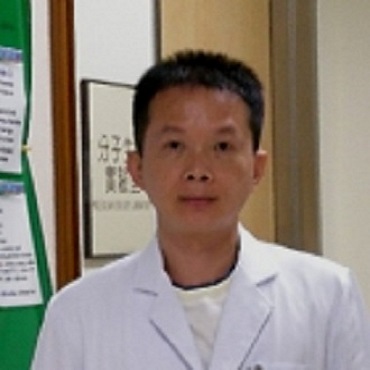
Thank you very much for providing me your wonderful program.
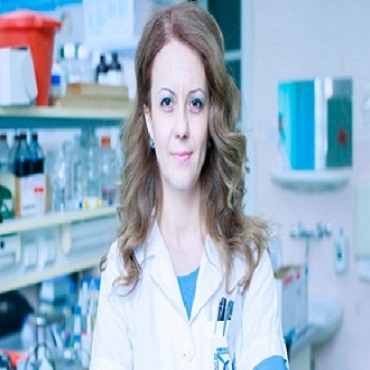
It was a genuine pleasure to participate at this event, the organization was professional and spotless and I felt very comfortable during the session.
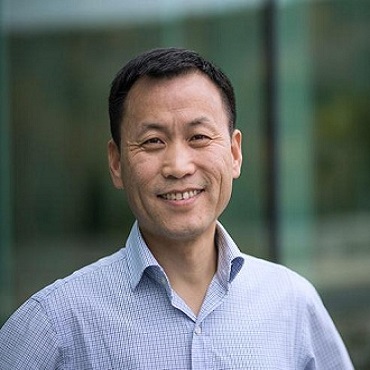
It was a well-organized conference and I certainly enjoyed it. Hope to enjoy again next year.

I am glad to have attended the “IPMC-2022”

I had fun in the meeting. So nice to get to see so many different topics from all over the world
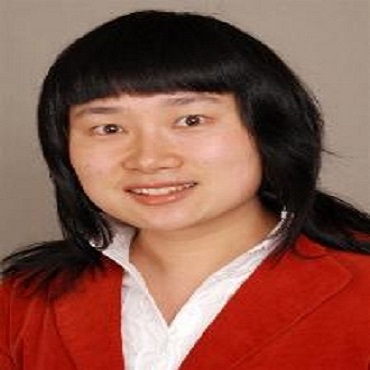
I really enjoyed the IMPC 2022!

That is a very successful meeting and I learn a lot. You did a great job to organize the meeting! I or my lab members will attend the future meetings.

It was an interesting conference, I am enjoying it.

I must congratulate the whole magnus team for a wonderful organised event by your team. Thanks a lot for your cooperation throughout the event. I would definitely want to be part of upcoming webinars

Thank you very much for having let me participate in this interesting conference
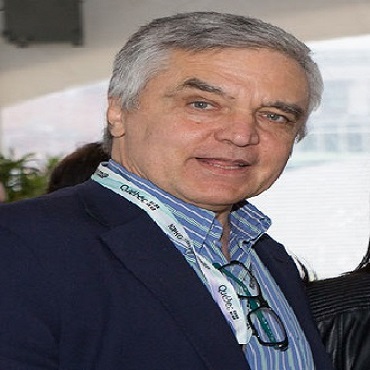
Best and thanks for the productive partnership and hope to keep on the collaboration! My best wishes and keep on this kind of the best partnerships.
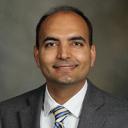
I enjoyed meeting with many of the attendees.

I did enjoy meeting so many people from different countries with great ideas.

I did thoroughly enjoy the Conference. It was a refreshing and inspiring meeting for me to hear about so much Nursing research being done.

The conference was simple fantastic. The topics, speakers, and especially the sharing with nurses and healthcare workers from around the world. The interaction with all people was so inspirational.

The conference was organized very well. I very much appreciated the fact that speakers were kept on time. I enjoyed the sessions.
SUBSCRIBE
Stay informed on our latest news!Important Alert:
X














